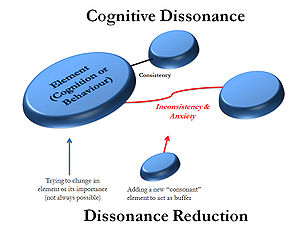Pages
Monday, December 26, 2011
Treatment of negative schizophrenic symptoms with antidepressants
Thursday, December 22, 2011
Complications of Newer Antipsychotic drugs
But recent evidence suggest that newer anti psychotics have different very dangerous complications. Newer atypical anti psychotics are known to cause serious blood lipid elevation in certain patients. It can complicate ischemic heart disease treatment in such patients. In addition, atypical/newer anti psychotics increase body weight. Common drugs that are responsible for body weight increase are Zyprexa, Clozaril and Seroquel. Risperdal and Abilify cause less weight gain. In fact Abilify seems to cause weight reduction in certain individuals.
Newer atypical antipsychotics such as Zyprexa, Clozaril and Risperdal (less) can also cause diabetes mellitus by way of increasing blood glucose level.
Therefore, long term overall benefit of newer anti psychotics remain questionable.
Monday, December 5, 2011
Can depression cause heart problems
 |
| Depression increases risk of heart disease |
Most people with depression do not care about the healthy food choices, because of lack of energy and motivation. In addition, they do not do regular exercises again due to lack of energy. In addition, depressed people with diabetes or ischemic heart disease tend to miss their pills.
 |
| Diabetic patients with depression tend to forget monitoring their health and take medications |
Therefore, it is very important to treat depression in people with cardiovascular risk.
Tuesday, November 15, 2011
What is Cytop (citalopram) depression medication prescribed for?
However, Citalopram is a racimic mixture of R and S enantiomer . S - enantiomer is the most effective active component. Escitalopram is the pure form of S - Citalopram and it is more effective in treating depression. But the clinical evidence is not so convincing.
Treatment most often reduces or even eliminates symptoms, but not a cure since symptoms can recur after medicine stopped. Once symptoms are gone, this medication should be continued for 1 year for the first episode of depression. For second and subsequent episodes of depression, treatment may need to be indefinite. Use in anxiety disorders may also need to be indefinite ( Panic disorder, generalized anxiety disorder, Post traumatic stress disorder, Social anxiety disorder ).
Usual dosage is 20–60 mg/day. This drug usually is prescribed in the morning to avoid insomnia or sleep disturbances.
READ MORE
1. What is Citalopram or Cytop is prescribed for?
2. What are the side effects Cytop or Citalopram?
Sources
British National Formulary 59th edition

Saturday, October 29, 2011
Relationship of Alcohol and mania (Bipolar disorder)
In addition, alcoholism can complicate preexisting bipolar mania. Abuse of alcohol can make the condition, difficult to treat. In addition, patients with mania is known to have social and emotional disinhibition. This make it hard to stop alcohol in a patient with bipolar disorder.
Alcohol is also known to cause or precipitate bipolar affective disorder. Therefore, alcoholism and bipolar disorder creates a viscous cycle that lower the prognosis of both conditions (Alcoholism and Bipolar disorder).
A person with both problems need to take drugs to control his/her bipolar disorder and take steps to stop alcoholism at the same time. Theses patients need lot of help from his/her family and the healthcare provider.
Thursday, October 20, 2011
Health risks of stress and tips for dealing with it
Importance of stress in our current society
Even though our society increased its sophistication, our body's mechanisms are lagging behind in the Stone Age.
Our body has two main roles. They are rest and face threats (fight/flight). During rest, our body increases digestion of food, stores energy and do general housekeeping jobs. But in a threat it increases energy expenditure, increases metabolism and prepare our body to fight or run.

In the stone stage, threats are not persistent. Once the caveman saves itself from a predator he can relax. But in the current society our body identifies normal day to day stressors as threat to its survival and switch to fight/flight mode. The difference is that our day to day stressors never end like in the Stone Age.

In addition, our day to day stressors do not need a flight/fight response (anxiety). They need a calm mind to sort the things out.
Our body is not prepared to maintain a fight/flight mode forever. Maintaining in that mode for longer duration would result in various diseases such as heart diseases and diabetes mellitus.
This maladaptation of physiology in current society makes stress one of the main causes of disease.
How stress increase the health risks
Stress increases adrenaline, noradrenaline and cortisol levels in the body. These hormones increase blood lipid and sugar levels. When the stress is persistent for long time, above risk factors can cause ischemic heart disease and precipitate diabetes mellitus. In addition, Stress hormones increase heart rate and power of the heart contractions. These actions could cause wear and tear of heart muscles. It could lead to heart failure and heart muscle dysfunction (cardiomyopathy).

Stressed out heart
In addition, elevated levels of stress hormones for longer duration can cause hypertension. This could further increase the heart dysfunction.
Addition to above methods stress could lead to unhealthy coping strategies such as increased smoking, increased alcohol intake and unhealthy dietary habits (taking fast foods, salty foods).

Tips for dealing with stress
- Don't worry about things you can't control, such as the weather.
- Solve the little day to day problems. This can help you gain a feeling of control.
- Prepare to the best of your ability for events you know may be stressful, such as a job interview.
- Try to look at change as a positive challenge, not as a threat.
- Work to resolve conflicts with other people.
- Talk with a trusted friend, family member or counselor.
- Set realistic goals at home and at work. Avoid overscheduling.
- Exercise on a regular basis.
- Eat regular, well-balanced meals and get enough sleep.
- Meditate.
- Participate in something you don't find stressful, such as sports, social events or hobbies.
Further reading
Stress - NIH article
Stress: How to Cope Better With Life's Challenges
Wednesday, October 19, 2011
Usage and side effects of Venlafaxine (Venlift, Venlamax, Vexor, Venla, Venjoy, Venfax, Vendep, Sentosa, Flavix and Dallium)
 |
| Venlafaxine (Effexor) capsules |
Monday, October 17, 2011
Causes, symptoms and treatment of Confabulation?
In addition confabulations are not intentionally produced. person does not know about the existence of memory deficit. Some people may act on them, confirming the belief in the false memory.
There are two type
1. Embarrassment confabulation : – This form is momentary in nature. The person tries to cover up memory gap by an ad hoc confabulated excuses.
2. Fantastic confabulation : – The patient spontaneously describes adventurous experiences of a fantastic nature.
Confabulating patients are often suggestible. That means a mere suggestion can induce a lie. For an example, if we suggest to him that he was there at a cafe during this morning (which does not happened) then he will describe the experience as " Yes i took my breakfast and it was fine".
Confabulation usually occur in Amnesic syndrome seen among alcoholic dependent patients. It is called Korsakoff's psychosis. It usually results due to thiamine deficiency that is associated with long term alcohol abuse. In addition, it can be seen among people with neurological disorders in the brain.
Treatment of Confabulation
It is usually treated with Thiamine replacement. However, established confabulation cannot be treated effectively. Only the progression can be stopped. It can be stopped by taking regular thiamine supplementation and complete abstinence of alcohol.
Summary
It is a primarily a memory disorder and the patients is unaware of the memory deficit. This leads to filling of memory gaps by a subconscious process that leads to believing a false memory as true. Patient genuinely believe that the false memory is true.
Further reading
Wishful reality distortions in confabulation: a case report.
Sunday, October 16, 2011
Side effects of Vistagra
It is manufactured in India by Cadilla Pharmaceuticals. Therefore, side effects are almost similar between these two preparations.
Vistagra causes erection after adequate sexual stimulation. It does not causes erection when the person does not have adequate sexual stimulation. It is also not effective when the sexual problems are due to serious psychological, relationship problems or serious medical problems such as vascular disease of the genitalia.
Common Side effects of Vistagra
1. Low blood pressure: Sudden lowering of blood pressure can cause strokes, heart attacks and blindness.
2. Seizures or fits
3. Priaprism or continuous erection of penis can result in penile fracture.
4. Nausea, Vomiting and heartburn
5. Nasal bleeding
Since Vistagra can precipitate low blood pressure it is not recommended in people with heart diseases such as recent myocardial infarction or heart attacks, heart failure and heart rhythm abnormalities. In addition, it is not recommended in people with epilepsy. In addition, if you had a episode of priaprism then it is not recommended.
Vistagra is a medication prescribed for male erectile dysfunction. Vistagra does this by inhibiting an enzyme called PGE5 or phosphodiesterase 5. By way of this inhibition it increases the Nitrous oxide level inside the penile vascular smooth muscles. This causes relaxation of vascular smooth muscles and penile erection. But this all happens when there is a proper emotional background. Therefore, Vistagra cannot erect a penis alone without sexual feelings.
Saturday, October 15, 2011
Causes, symptoms and treatment of Extrapyramidal side effects of antipsychotics
One is pyramidal system (Tracts originating from motor cortex and innervating skeletal muscles) and other is Extrapyramidal system (Pathways other than pyramidal system which affects motor movements).
 |
| Extrapramidal system |
Wednesday, October 5, 2011
Relationship between violent behavior and mental illnesses
In addition, schizophrenia shows lowest incidence of violence. Bipolar affective disorder and major depression patients are more violent than schizophrenic patients. Patients with substance abuse issues are the most violent.
Who are at risk?
According to the above study and the personal experience of this author, close relatives of the mentally ill are at most risk. Risk to general public is much less than expected. In fact incidence of violence is almost similar to non-mentally ill people.
What are the predictions of violence in mentally ill?
One of the best predictor is past violence. Past unprovoked violence carries the greatest risk. In addition, substance abuse issues increase the violence of mentally ill patients. Other factors that are thought to increase violence are command hallucinations, and severe prosecutory delusions. In addition, people with severe depression may harm their dependents. E.g. severely depressed mother may kill her young children just to save them from her imagined misery.
How to control violence in a mentally ill?
Even the risk of violence is low, they do occur and most people who deal with mentally ill patients need to know how to tackle them.

1. Talking to the patient calmly will alleviate most of the violence. Most people with mental illnesses become violent because they do not get their basic needs. In fact for some of the reasons even the most normal sane people could get violent. For an example, one of the patients who really got violent and try to break the door of the seclusion room became so because he could not contact his mother. Contacting his mother stopped his violence completely.
2. Even most patients can be calmed down by talking, some do need drugs. First option is oral antipsychotics with sedating properties such as Olanzapine.
3. Third option is intramuscular sedative drugs such as Olanzapine, Haloperidol and Midazolam. These drugs will quickly calm down a patient but they can cause side effects such as abnormal movements and respiratory depression (Midazolam).
In extreme rare cases patients need to be physically restrained. Usually it is to allow an intramuscular injection. When the patient is sedated physical restrain should be removed.
Sources
Violence and mental illness: an overview
Violence and Mental Illness — How Strong is the Link?
Link of this post
Relationship between violent behavior and mental illnesses

Monday, October 3, 2011
Mental health problems associated with obesity
Summary
According to evidence certain mental health issues can cause obesity. In addition, certain other biological problems in our brain can cause both mental health problems and obesity. In addition, obesity per se can cause mental health problems. So both conditions are interdependent to some degree.
In addition, it is surprising that people with obesity have less substance use issues (Such as alcohol, cannabis and opioids).
Sunday, September 25, 2011
Effects of lithum on developing fetus
There are several documented cases of birth defects caused by Lithium in humans. They include Epstein anomaly. It is a heart anomaly that can become a severe problem in later life.
In addition, high doses of lithium can cause several abnormalities in the rat fetus. They include high incidence of cleft palate, growth retardation, brain liquification and pulpy brain, hepatomegaly and digital abnormalities. However, incidence in humans are not available because of the obvious reasons.
But stopping lithium during pregnancy can cause severe relapse of bipolar disorder. Which can result in more damages to the fetus and the mother. So doctors weigh risks and benefits of continuing lithium during pregnancy. Sometimes your doctor may decide to continue lithium with the aforementioned risks. In addition, there are very few safer bipolar maintenance therapy options available to the doctors. Some doctors may change the drug regimen to anti-psychotic medications with mood stabilizing properties such as seroquel/zyprexa.
Sources
Teratogenic effects of lithium and ethanol in the developing fetus.
Thursday, September 15, 2011
Best drugs for insomnia after giving up alcohol
Sunday, September 4, 2011
Effects of antipsychotic medications on dementia – Analysis of CATIE-AD study
Doctors usually prescribe antipsychotic medications for dementia, especially to calm down acutely disturbed patients. In addition, some patients are given regular dose of antipsychotics as a maintenance therapy to improve sleep and agitation. Most common antipsychotics prescribed are Risperidone (Risperdal®), Quetiapine (Seroquel ®), and Olanzapine (Zyprexa®).
However, there is a recent debate among doctors regarding the long term outcome of this practice. One of the reasons is the blood lipid abnormalities seen in patients who are prescribed atypical antipsychotics such as Risperidone (Risperdal®), Quetiapine (Seroquel ®), and Olanzapine (Zyprexa®). This could lead to heart problems such as heart attacks. In addition, these problems could increase the memory impairment seen in Alzheimer's disease due to blockage of vessels in the brain.
Now doctors have concluded several studies on this regard. One of such is the “Clinical Antipsychotic Trials of Intervention Effectiveness–Alzheimer's Disease study (CATIE-AD)” study. As the name suggest it looked into the relationship between prescription of antipsychotic medications and Alzheimer’s dementia. This study mainly looked at memory impairment and other cognitive impairments seen in dementia patients who are prescribed antipsychotics.
How the CATIE-AD study is conducted?
This study carried out in more than 400 patients. Most of them are community dwelling moderate to severe dementia patients. These patients were randomly allocated to different treatment groups and they were prescribed Risperidone, Quetiapine and Olanzapine. In addition, patients were given different medications in different times similar to crossover design. This study was carried out around three years.
Results of the study
This study reported a statistically significant cognitive impairment associated with antipsychotic medications. That means people who were prescribed antipsychotics showed greater memory impairment than the people who were not prescribed them.
Background
Many other studies that were performed around the time showed conflicting results.
Conclusions
This study is not a very large study and the cross over design can have many problems that would change the outcome. However, it will certainly put more weight on the argument that antipsychotics cause cognitive impairment. But other options available for agitation and psychosis seen in dementia patients such as benzodiazepines may also cause cognitive impairment. Therefore, in practice it is difficult to stop prescribing antipsychotics for patients with dementia.
Sources
Consequences of Antipsychotic Medications for the Dementia Patient - Am J Psychiatry 168:767-769, August 2011
Wednesday, August 10, 2011
What is the psychology behind rioting
According to psychologists, Three psychological concepts operate in rioting. First one is the broad concept of Fundamental attribution error. Second one is Deindividuation and it comes under fundamental attribution error. Third one derived from psychoanalytic theory and here natural aggressive drives are let loose by the context of riot.
What is Deindividuation ?
Deindividuation is a social psychological phenomena seen in certain situations. It is especially seen in mobs. Here an anonymous member of a mob will act differently than as an individual.
"In Deindividuation people’s salience of the personal identities are reduced and they acquire the identity of the group or mob. In addition, in deindividuation, there is a reduction in the sense of public accountability. These factors cause the individual to act aggressive or show unusual behavior. Two key characteristics are the group size and anonymity of the individual."
In simple terms during a riot people tend to remove previous personal value system and merge into the value system of the mob. In addition, there is a diffusion of responsibility among the individuals. These effects are directly proportionate to the number of people in the riot and the individuals anonymity in the situation. Anonymity can be enhanced by wearing masks.
In addition, some psychologists believe riots give a perfect place to explore humans hidden motives such as aggression.
In English riots Clive Coleman of the BBC News legal team said,
"A significant number of those charged were said in court to be of previously good character and had simply been drawn in to the offending."
 |
| Normal people turned into robbers Courtesy - BBC |
Above statement explains the power of situations in shaping our behaviors. But the England's prime minister said,
"You will feel the full force of the law. And if you are old enough to commit these crimes, you are old enough to face the punishment." - English Prime minister
What is fundamental attribution error?
This concept of de individuation is under the another broader social psychological principle called Fundamental Attribution error.Fundamental attribution error is "The human tendency to overestimate constitutional factors and underestimate the power of situations in shaping our behavior." For an example we may believe a person whom we know little about is not good person when he does not smile at us.
But we ignore the fact that he may had a quarrel with his wife when we saw him or he may had an bitter argument with his boss just before we met him. We simply attaches that behavior to his character, not to the situation.Rioting is another good example of fundamental attribution error. Examples of power of situations in shaping human behavior are numerous. Most striking example would be the horrors we saw in Nazi Germany, where normal law abiding citizens became cold blooded killers. In fact, most of the psychological research were conducted immediately after the World War 2 to explain these evil tendencies inside us (e.g. Stanford prison experiment, Milgrams experiments on obedience).
Sources
Atkinson and Hilgard - Introduction to psychology 14e
BBC report on UK Rioting
BBC article on UK riots: What turns people into looters
Friday, August 5, 2011
What are the common schizophrenia symptoms?
Frank delusions and hallucinations are categorized as positive symptoms of schizophrenia. Most common delusions are delusions of control, delusion of perception and thought broadcasting. Most common hallucinations are thought echo, third person auditory hallucinations and hallucinations hearing as a running commentary.
 In addition, some patients can have negative symptoms such as apathy, social withdrawal, amotivation and lack of drive. These symptoms usually occur in patients with chronic schizophrenia. They are quite difficult to treat.
In addition, some patients can have negative symptoms such as apathy, social withdrawal, amotivation and lack of drive. These symptoms usually occur in patients with chronic schizophrenia. They are quite difficult to treat.Friday, July 29, 2011
Diagnosing and treating ADHD in children
Childhood ADHD or attention deficit hyperactive disorder is one of the commonest causes of childhood learning disability. Therefore, early diagnosis and treatment is essential for better outcome.
Parents need to identify some of the salient features, therefore they can refer the child to a proper channel.
How to diagnose ADHD?
To get a accurate diagnosis, the doctor need to have good experience in child psychiatry. However, some symptoms point towards ADHD. In addition, most of the children in the age of 4 –5 are quite active and therefore diagnosis can be missed.
1. Short attention span. Most children with ADHD cannot concentrate on one task for more than 5 –10 minutes. They will shift their attention from one topic to another in very quick succession. e.g. after 2 –3 minutes of drawing a picture, they may start to ride a bicycle, after 4 –5 minutes they may again play with clay. However, most children in ages of 4 – 5 normal attention span is around 15 - 20 mins.
 2. Doing dangerous things to themselves can be a another diagnostic factor. Children around 3 – 5 years generally know what is dangerous and what is not. However, ADHD children in that age may try to harm themselves by recklessness. They may climb trees without thinking about their safety or try to jump here and there in road.
2. Doing dangerous things to themselves can be a another diagnostic factor. Children around 3 – 5 years generally know what is dangerous and what is not. However, ADHD children in that age may try to harm themselves by recklessness. They may climb trees without thinking about their safety or try to jump here and there in road. How ADHD affects childs life?
How to treat it?
Children with confirmed diagnosis can be effectively treated with medications. In addition, they need special schools and specially trained teachers. Most children with ADHD can become normal after proper treatment.
What are the medications used in ADHD?
1. Different types of medication used in ADHD
Side effects of drugs used for ADHD
1. Side effects of Ritalin
2. Side effects of Concerta
3. Side effects of Vyvanse
Tuesday, July 19, 2011
How to change human behavior through Cognitive dissonance theory?
Cognitive dissonance theory is a prominent social influence theory that was developed by Leon Festinger. It is used in behavioral modification such as in preventing alcohol abuse.
According to this theory, there is a drive towards cognitive consistency in humans. These cognitives are attitudes, behavior, and facts. When there is a inconsistency between two cognitions, the person experiences an internal discomfort. This makes the individual to remove that discrepancy and bring the cognitions into harmony.
For an example, we can ask a person who is abusing alcohol to join an anti alcohol public campaign. We can motivate him to do this by saying that it is not such a big deal and you can make new friends. In addition, if he is not willing to stop alcohol then we can say that he can continue drinking in other times and the participation is just a another event.
However, active participation in an anti alcohol campaign creates a cognitive dissonance in a person who abuse alcohol and it causes discomfort.
 | |
 | |
| Image via Wikipedia |
Most people will remove that discomfort by changing their attitude against alcohol. which will ultimately result in stopping the alcohol taking behavior. It is because changing the line of action that is already undertaken create more discomfort and it introduces the idea that the initial judgment to participate in the event is wrong. It is usually against one’s generally favorable view of oneself.
Actually anti alcohol campaigns are not much of a help to general public. However, they are effective in controlling alcohol intake in the people who actively participating in such programs.

Monday, July 18, 2011
Interactions of alcohol with antidepressants (Elavil, Prozac)
All these actions results in significant interactions between other psychopharmacological medications such as antidepressants.
Interactions with TCA (Elavil, Amitryptalline)
Alcohol causes reduction in REM (Rapid eye movement) sleep. It is one reason for the hangover seen in the following day. In addition, it worsens sleep disorders. Antidepressants such as TCAs also causes disturbances in REM sleep. REM sleep is believed to be important for our mental health. Taking Elavil and alcohol will result in greater sleep disturbance and can increase the hangover.
In addition, both agents causes drowsiness. Therefore it can increase the day time drowsiness as well. Both agents cause impairment skilled tasks, therefore operating machinery or driving motor vehicles would be very dangerous if you take Alcohol in combination with Elavil.
If somebody who used to take alcohol would find that they will get problems of alcohol for a small amount, when they combine Elavil or any other TCA class antidepressant with alcohol.
Interactions with SSRIs
Even though, Prozac cause no sedation, it can happen if you take alcohol and prozac together. Prozac will increase the sedative properties of alcohol.
Summary
You should be very cautious when taking both alcohol and antidepressants. It is better not to drive or operate machinery when you take alcohol (even amount of alcohol that can be previously taken safely) with an anti depressant.
Sources
British National formulary
Further reading
http://www.mayoclinic.com/health/antidepressants-and-alcohol/AN01653
Tuesday, July 12, 2011
Pathological Alcohol intoxication (mania a potu)

However it is a rare phenomenon. In addition it is important to note that it is used by criminals to form a legal defense against their criminal activities. e.g. I killed that person because I took quarter of glass beer and I am having pathological intoxication. But most experts can differentiate real pathological intoxication from a fake one.
But some doctors think that there is no entity called pathological intoxication and there is no evidence based data to back it up.
In addition, this condition is not associated with bipolar mania (as the name suggests). You can read my blog post on relationship between alcohol and bipolar mania here
It should be distinguished from delirium tremens which is associated with alcohol withdrawal. Delirium tremens is a state that follows after a reduction in amount of alcohol taken by an alcohol dependent person. Person who abuses alcohol for some time may take less than the usual amount of alcohol and then he/she may go into develop delirium tremens.
Further reading on alcohol related issues
A case history of Pathological alcohol intoxication - PsycNET - American psychological association
Pathological intoxication, Is there such an entity (Pubmed abstract)
Librium for alcohol withdrawal
Uses and side effects of Nodict tablets : A medication prescribed for alcohol relapse prevention.
Monday, July 11, 2011
What is Delusion of Love (Erotomania) ?
What is delusion of love?
Here, typically a woman believes a man who is in higher social status and older, is in love with her. Although the person has done nothing to deserve her attention and he may even be unaware of her existence. Often reasons given by her for being in love is illogical. For an example a women who is saying that her school headmaster is in love with her may say that it is because he enters into the lecture hall in the direction she was seated at.
 |
In addition, sometimes this delusion can have a persecutory tinge. For an example, the deluded person may say that the love letters send by her school headmaster were stolen by her friends.
Most of the time the man is a well known public figure, singer or patients employer. Sometimes patient may even believe that he (victim) is the father of her children.
Who gets it?
Usually it is seen in delusional disorders. Here the patient does not have any other delusions and her life is revolved around a delusion. But it is common in other psychiatric disorders like schizophrenia and Bipolar disorder.
 |
It is said that, Michael Jackson’s popular song Billie Jean is based on an incident where delusion of love is involved. Lyrics of Billie jean.

1. Symptoms of mind by Andrew sims
2. Wikipedia Billie jean page
Saturday, July 2, 2011
The side effects of Ridal
 |
| Ridal is brand of risperidone |
Uses of Ridal
This medication is primarily used for schizophrenia and bipolar disorder. In addition, it is used to manage behavioural problems associated with dementia. It is also used for severe behavioural problems associated with childhood mental health disorders.
How Ridal works?
Since this drug is an atypical antipsychotic, side effects are less than the typical antipsychotics such as largactil. It is because older typical antipsychotics usually block only the dopamine receptors and this causes more side effects. Ridal blocks both dopamine and serotonin receptors. It seems that the additional serotonin block counteracts the dopamine side effects.
What are the common side effects of Ridal?
Drowsiness is the commonest side effect. Gastrointestinal disturbances like nausea and vomiting are also common. In addition, some patients may get abnormal movements with this medication and akathesia (inability to keep the feet in one place) is another troublesome side effect that can occur with Ridal. Drug induced Parkinson’s disease is another side effect.
Headache is another common side effect. Some patients can get blurred vision. In addition, women may complain abnormal milk production from their breasts. Sometimes this medication can cause sexual dysfunction (impotence) in both men and women.








